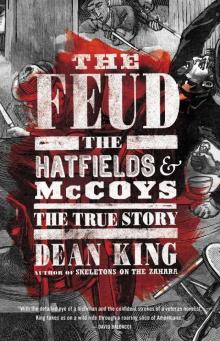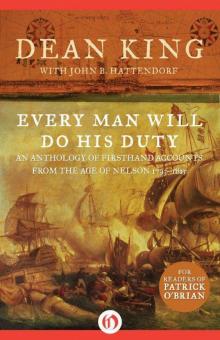A Sea of Words Read online
Page 20
Fencibles A part-time organization of fishermen and boatmen, commanded by naval officers for local defense against invasions.
fender A bumper made of various materials, such as pieces of old CABLE or canvas bags of cork, and hung over a vessel’s side to prevent chafing or collision with a wharf or another vessel.
fenum habent in cornu They have hay on their horns (Latin). Figuratively: they are dangerous men. The term refers to the practice of padding the horns of menacing oxen with hay, both to soften the blow and to serve as a warning about the animals’ nature. It was used in an ode by Horace to describe a dangerous man.
Fernando Poo Known since 1979 as Bioko, an island off the coast of West Africa, 60 miles off Cameroon in the Bight of Biafra.
Ferrol Seaport on the northwest coast of Spain and the site of a pre-TRAFALGAR skirmish between Admiral CALDER and Admiral VILLENEUVE.
fetor An offensive smell; a stench.
fettle Condition, state, or spirits, as when a person is said to be “in high fettle.”
fib To strike or beat, to deliver blows in quick succession.
Ficus religiosa The BANYAN or Indian fig tree, a remarkable East Indian tree with branches that send shoots to the ground, which take root and support their parent branches. Extending in this way, one tree covers a great expanse of ground.
fid A square bar of wood or iron with a shoulder at one end, used to support the weight of the TOPMAST and also the TOPGALLANT MAST. Also, a tapered hand tool for opening up the strands of a rope when splicing.
fiddle A rack or rail or other contrivance to prevent dishes and cups from rolling off a ship’s table in bad weather.
Fiddler’s Green A sailor’s imagined paradise, free of the hardships of the sea and rich with wine, women, and song.
fiferail The uppermost railing around the QUARTERDECK and POOP. Also, the rails around the MASTS holding BELAYING PINS for the running RIGGING.
figgy-dowdy A West Country suet pudding with raisins, a favorite of Cornish and Devon men.
figure-head An ornamental carving, usually a bust or full-length figure, placed over the CUTWATER of a ship and a point of pride with seamen.
file An artful, cunning, or shrewd person; a fellow or COVE. In military use, a small column of men.
filibeg A kilt.
filioque Meaning “and from or to the Son” (Latin), the word “filioque” was inserted in the Western version of the Nicene creed to assert the doctrine that the Holy Ghost proceeds from the Son as well as from the Father, which is not admitted by the Eastern Church.
fin whale also finner or finner-whale Whale of the genus Balaenoptera, especially the rorqual, which has a dorsal fin and measures 60 to 90 feet in length.
finger-post A post at a crossroads with one or more arms (often ending in a pointing finger) to indicate directions; a guide-post.
Finisterre Cape on the northwest Atlantic coast of Spain, its westernmost point.
fire-bote The right of a tenant to take firewood from a landlord’s estate.
fireman On board a warship, four men from each gun crew were detailed as boarders, and two of these acted as firemen in the event the ship caught fire during action. The ship’s fire engine was manned by the second division of boarders, while the first division and carpenters cleared away obstacles.
fire-ship A vessel filled with combustibles and explosives and set to drift among enemy ships to destroy them. Also, one suffering from venereal disease; a prostitute.
firk To contrive to make a living. To get money from a person, especially by cheating or robbing.
firkin A small cask for liquids, fish, butter, etc., originally containing a quarter of a barrel or half a kilderkin. As a measure of capacity, half a kilderkin. (The barrel, kilderkin, and firkin varied in capacity according to the commodity.)
firman An edict or order issued by an Oriental sovereign, especially the sultan of Turkey but also by the BASHAWS of North Africa; a grant, license, passport, permit.
First Lieutenant The executive officer of a ship, usually the second in command.
First of June See GLORIOUS FIRST OF JUNE.
first-rate See RATE.
fish A long piece of timber lashed to a MAST or YARD to strengthen it. To fish is to fasten a fish upon a BEAM, MAST, or YARD to strengthen it or to mend a broken SPAR with a fish or fishes. To “fish the anchor” is draw up the FLUKES to the GUNWALE and secure the anchor there.
fish-fag A female hawker of fish; a fishwife.
Fitzherbert, Mrs. (1756-1837) Born Maria Anne Smythe, as a Roman Catholic widow, she secretly married the future King George IV, when he was the Prince of Wales, in 1785. Under the Royal Marriage Act of 1772, this marriage was invalid, since it was made without King George Ill’s consent; the prince later denied that any marriage had taken place. When Prince George married the Princess Caroline in 1795, he temporarily stopped seeing Mrs. Fitzherbert, but resumed a connection with her with the Pope’s consent. He finally broke off the relationship in 1803.
Flag-captain The captain of a FLAGSHIP.
Flag-lieutenant An officer acting as an aide-de-camp to an ADMIRAL.
flag officer An ADMIRAL, Vice-Admiral, Rear-Admiral, or COMMODORE.
flag rank The rank of ADMIRAL, Vice-Admiral, Rear-Admiral, or COMMODORE.
flag-share An ADMIRAL’S or COMMODORE’S share of PRIZE-MONEY: one eighth.
flagship A ship bearing an ADMIRAL’S or COMMODORE’S flag of command.
flambeau A torch, especially one with several thick wicks dipped in wax; a lit torch.
flat Of a sail, to make it flat or close against the MAST; to make it taut.
fleam A surgical instrument for letting blood or for lancing the gums. Also, a lancet.
fleam-tooth FLEAM-shaped tooth of a saw; that is, with the outline of a low Gothic arch.
Fleet Prison Taking its name from the Fleet stream flowing into the Thames, a London prison infamous for the cruelties inflicted on its prisoners. Dating back to Norman times, it became notorious as the prison to which people sentenced by the Court of Star Chamber and, afterward, debtors, were sent. Burned down in the Great Fire of 1666, it was rebuilt, but was destroyed in the GORDON RIOTS in 1780, rebuilt in 1781-82, finally closed in 1842.
The Fleet Prison as seen from Farringdon Street in 1830
flemish To coil in a FLEMISH FAKE.
Flemish fake A method of coiling a rope into concentric circles that don’t overlap so that the whole is rendered flat and solid to walk on and so that the rope will run freely when needed.
flense To cut up and slice the fat from a whale or seal. To flay or skin.
flint-lock A gunlock in which the hammer is struck against a flint to produce sparks that ignite the priming in the flash-pan.
flip Beer and spirits, sweetened and heated with a hot iron.
flogging around the fleet A severe form of punishment in which the convicted was rowed from ship to ship and lashed a dozen strokes beside each while the crew looked on and the drums on board beat the “Rogue’s March.”
flog the glass To shake the WATCH-GLASS in order to speed up the passage of the sand inside and shorten the WATCH.
flotilla A small fleet of ships or a fleet of boats or small vessels.
flowing sheet When the lines, or SHEETS, controlling the sails are eased up or slackened off. When the wind is abeam.
fluke One of the broad triangular plates on each arm of the anchor, which helps hold the anchor in place on the bottom. Seamen pronounced the word “flue.”
flummery A dish made of wheat flour or oatmeal, steeped in water and turned sour. Various custardlike sweet dishes made with milk, flour, and eggs. Also, empty flattery.
fluor albus A mucous discharge from the uterus or vagina.
flush or slush A seaman’s name for grease collected from fat drippings.
flute A distinctive ship design developed by the Dutch for an inexpensive and efficient cargo ship to carry bulky cargo with relatively few seamen and few, if an
y, guns. Also called a “fluit” or “flyboat.”
flux Diarrhea. See also BLOODY FLUX.
fly Alert and aware, sharp. Also the length of a flag from the staff to the extreme end that waves in the breeze.
flying fox A fruit-eating bat found in India, Madagascar, Southeast Asia, and Australia.
flying jib A light sail set before the JIB, uppermost on the flying jib-BOOM.
flying squid Also called the sea-arrow, a mollusk of the genus Ommastrephes.
fob A small pocket in the waistband of breeches for a watch, money, or other valuable.
fo’c’sle or forecastle A short raised DECK at the FORE end of a vessel, originally for archers to shoot arrows into enemy vessels. In a MAN-OF-WAR, the part of the upper deck forward of the FOREMAST. Also, a generic term for the crew, whose QUARTERS were beneath this deck, as in a “forecastle hand.”
foeda est in coitu et brevis voluptas There is a filthiness in sex and only brief pleasure (Latin).
foin To thrust with a pointed weapon, to lunge, push.
folie circulaire Literally, encircling madness. A form of insanity in which the patient has intervals of lucidity (French).
fons et origo The source and origin (Latin).
foolscap An image of a jester’s pointed cap with bells used as a watermark for paper. Hence, a sheet of paper.
footpad A highwayman who robs on foot.
foot-rope A rope beneath a YARD for the sailors to stand on while FURLing or REEFing. See also HORSE.
fore A part of a ship that lies near the BOW or in that direction; also, parts connected with the FOREMAST, as in fore ROYAL, the name of one of the upper sails on the foremast.
fore-and-aft Placed or directed in the line of the vessel’s length. Of sails: JIBS, STAYSAILS, and GAFF sails. A vessel rigged with such sails, as opposed to a SQUARE-RIGGED vessel.
forecastle See FO’C’SLE.
forecourse The largest and lowest square sail on a ship’s FOREMAST. See illustration, page 64.
forefoot The foremost piece of the KEEL or a timber that ends the keel in front and forms a rest for the STEM’S lower end.
Foreign Office From 1783 the department of the Secretary of State for Foreign Affairs. Also, the building that houses this department.
foremast The forward lower-MAST in a vessel.
foremast man A sailor below the rank of PETTY OFFICER.
forepeak The extreme end of the forehold in the angle of the BOWS.
fore reach The distance a ship’s momentum will shoot her up into the wind when the BOW is swinging that way while TACKing. To fore reach is to shoot ahead or to draw ahead of another sailing vessel when CLOSE-HAULED.
foresail In a SQUARE-RIGGED vessel, another name for the FORECOURSE, the principal sail set on the FOREMAST and the lowest on that mast. Above the foresail came the fore lower TOPSAIL, the fore upper topsail, the fore TOPGALLANT, the fore ROYAL, and the fore SKYSAIL. The triangular sail attached to the FORESTAY in a FORE-AND-AFT rigged vessel.
fore-tack The rope securing the WEATHER corner of the FORESAIL.
foretop The top of a FOREMAST and the small platform there. Also, one of the divisions of a ship’s crew.
foretop man One of the men stationed in the FORETOP.
fore topmast The MAST above the FOREMAST.
foreyard The lowest and largest YARD on the FOREMAST.
fork-tailed petrel A small seabird with black and white plumage and long wings.
forlan A lively Venetian dance, also its music.
forme A body of type secured in a metal frame for printing at one impression.
Formidable, H.M.S. The first ship in the Royal Navy by this name was captured from the French in 1759 at the battle of Quiberon Bay. In 1777, a second rate by the same name was launched at Chatham, and at the Battle of the SAINTS in 1782 she served as the FLAGSHIP of Admiral Sir George RODNEY.
forrarder Farther forward.
fother To seal a leak by lowering a sail over the side of the ship and positioning it to be sucked into the hole by the rushing sea.
Fouche, Joseph, Due d’Otrante (1759-1820) Napoleon’s Minister of Police, who set up a feared police apparatus with an extensive network of informants, allowing him to ferret out real and imagined plots against the emperor, which he ruthlessly crushed.
Foudroyant, H.M.S. This name first entered the Royal Navy when the 80-gun Foudroyant was captured from the French in 1758. In 1798, the second Foudroyant, a second rate of 80 guns, was launched at PLYMOUTH and later served as the FLAGSHIP of both Lord NELSON and Lord KEITH. She was wrecked in 1897. Following this, the 46-gun Trincomalee, built in 1817, was renamed FOUDROYANT and remains afloat today at Hartlepool.
foul To entangle an anchor or a CABLE. TO jam, block, or make incapable of working. To run afoul of, collide with.
four-in-hand A vehicle with four horses driven by one person.
four-pounder A gun that propels a four-pound shot.
fowling-piece A light gun for shooting wild fowl.
fox A strand formed by twisting several rope-yarns together and used as a SEIZING or to weave PAUNCHes, which were used around YARDS and RIGGING to prevent wear.
fragilis ratis Fragile raft (Latin).
framework Knitting or weaving done on a stocking-frame or knitting machine. Also, a knitting machine.
Franciscan Of or belonging to the order of St. Francis. A friar of the order founded by St. Francis of Assisi in 1209.
francolin A partridge of Southern Asia and Africa.
frank The superscribed signature of a person, such as a member of Parliament, entitled to send letters free of charge. A letter or envelope bearing such a superscription.
Frank A name given by the nations bordering on the LEVANT to a person of Western nationality, from the short-lived Frankish kingdoms established by French crusaders in the 11th and 12th centuries.
frap To bind tightly.
freeholder One who possesses a freehold estate, an estate held in fee or for life.
Freemason Originally a skilled stoneworker. Later, an international society promoting brotherly feeling among its members.
freight-money Payment for conveyance of freight.
freshen Of the wind, to increase in strength. Also, to shift the place where a rope catches on something in order to relieve chafing. Thus, “to freshen the HAWSE” means to pay out more CABLE to relieve wear in one spot. Figuratively, to take a few nips of whisky or rum. “To freshen way” means to increase the speed.
Friar A member of a mendicant order, such as the Franciscans, who originally lived a monastic life and generally did not believe in personal or communal property.
Friend A member of the Society of Friends, a Quaker.
frieze A kind of coarse woolen cloth, with a nap usually on one side only.
frigate A fast three-masted fully RIGged ship of the fifth or sixth rate, carrying 20 to 50 guns on the MAIN deck, with a raised QUARTERDECK and FORECASTLE. Used for scouting and cruising. “FRIGATEs are the eyes of a fleet,” said NELSON, who also stated in 1798, “Was I to die at this moment want of frigates would be found stamped on my heart.”
frigate bird A large, swift predatory bird of the genus Fregata, found near land in the tropical and warmer temperate seas. It has long, pointed wings and the highest surface-area-to-body-weight ratio of any bird. Frigate birds are uniquely graceful flyers that hover and swoop to take food from the surface of the sea, rarely entering the water, and are known to rob other birds. Also called man-o’-war bird.
The frigate bird, Tachypetes aquilus, also called the man-o’-war bird
fritillary Any plant of the genus Fritillaria of the lily family, especially wild snake’s head, which grows in damp meadows and has drooping purple or white bell-shaped flowers, and crown imperial.
frock A woolen GUERNSEY or JERSEY worn by sailors. Also, a coat cut long and similar in style to the civilian frock-coat, worn on semiformal occasions, such as Sundays and during WATCHes in harbor.
f
ront-fish A PAUNCH, a wooden covering on the FORE side of a MAST to preserve it from chafing when masts or SPARS are lowered or raised.
froward Perverse, hard to deal with, ungovernable. Also, in a wider sense, bad or naughty.
frowsty Fusty, having an unpleasant smell.
frowzy Ill-smelling from being dirty, unwashed, or ill-ventilated. Untidy, soiled, unkempt.
fruit-bat A genus of tropical and subtropical bats having membranous wings, also known as FLYING FOXes.
frumenty A porridgelike dish made of wheat boiled in milk and seasoned with cinnamon, sugar, and sometimes dried fruits.
fuddle To intoxicate; to stupefy, muddle, or confuse, as with drink.
fug A close, stuffy atmosphere, especially in an overcrowded room with poor ventilation.
fui non sum non euro See NON FUI NON SUM NON CURO.
full toss In cricket, the delivery of a ball that doesn’t touch the ground in its flight between the wickets.
fulmar A PETREL about the size of the common gull.
fulvous vulture The golden vulture, a very large bird of prey that feeds on carrion and has a featherless head and neck.
funnel A cylindrical band of metal, especially one fitted onto the heads of the TOPGALLANT and ROYAL MASTS, over which the EYES of the RIGGING are placed.
furcula A forked bone below the neck of a bird, the wishbone.
furl To roll up and bind a sail neatly upon its YARD or BOOM. In Post Captain, Admiral Harte chastizes Aubrey for furling his sails in the bunt rather than in a body. At sea, sails were normally furled in a bunt, that is, hauled up under the yard and secured. In the late 18th century, a new system, furling in a body, was introduced to reduce windage aloft, to better protect the canvas, and for aesthetic reasons. For the TOPSAIL, for example, this involved gathering the loose part of the sail into the TOP. While many seamen criticized this as a “newfangled fashion,” it became commonly used in harbor.
furlong An eighth of an English mile, or 220 yards.
furze A spiny evergreen shrub with yellow flowers that grows throughout Europe. Also called gorse or whins.
fusil A light musket or firelock or a soldier armed with a fusil.

 A Sea of Words
A Sea of Words Skeletons on the Zahara
Skeletons on the Zahara The Feud: The Hatfields and McCoys: The True Story
The Feud: The Hatfields and McCoys: The True Story Every Man Will Do His Duty
Every Man Will Do His Duty 9/11...The Tragic Story of the Day that Changed America: The Terror, The Horror and The Heroes
9/11...The Tragic Story of the Day that Changed America: The Terror, The Horror and The Heroes White Slave Cop
White Slave Cop Skeletons on the Zahara: A True Story of Survival
Skeletons on the Zahara: A True Story of Survival